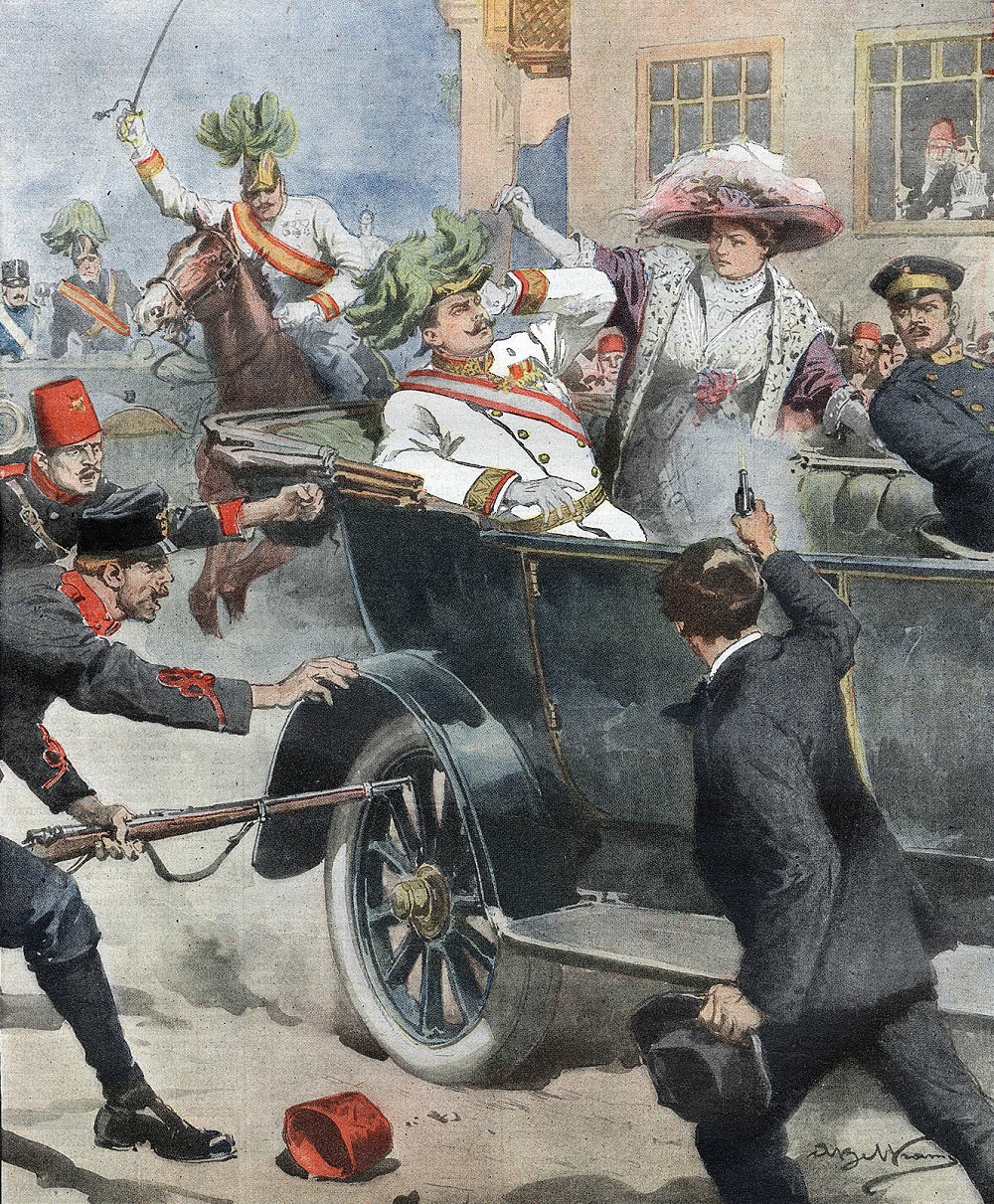The assassination of Archduke Franz Ferdinand was one of history’s greatest turning points, but it happened by accident. Everyone knows the story ends with the death of the Archduke and his wife, Sophie, putting into play the diplomatic crisis that led to the First World War. It is perhaps less well known that the events leading up to the assassination were a terrible comedy of errors that culminated in a world-changing tragedy.
It was this combination of tragedy and comedy that first drew me to the story and, I hope will draw people to a novel about the assassination, despite knowing the ending. The assassination of Franz Ferdinand happened as a result of a whole series of mistakes and missed opportunities right from the beginning.
When the assassins travelled from Belgrade to Sarajevo, Nedeljko Cabrinovic, the biggest liability of the conspirators, met a police detective from Sarajevo on the train in Bosnia. The detective was a friend of his father’s, a businessman and pillar of the community, and there was much conflict between the radical Nedeljko and his father.

Gavrilo Princip
The policeman had recently seen Cabrinovic senior and struck up a conversation with Nedeljko to catch him up on family news. This made Gavrilo Princip, who was traveling separately, but by accident sitting in the same train carriage, nervous. Cabrinovic’s easy going nature had already endangered the other assassins during the journey. The Policeman noticed and asked Cabrinovic who Princip was and why he was staring at them, but his suspicions were not raised. A simple request to see papers would have revealed Princip was travelling illegally and put pay to the whole plot before the assassins reached Sarajevo.
This reflects the Austro-Hungarian Government’s attitude to the threat placed by the nationalist movements in their Balkan provinces. No attempt was made to counter them because the security services did not believe they existed, let alone posed a threat. The repeated warnings of a possible assassination were ignored by the local military governor, General Potiorek, the Archduke himself and the Austro-Hungarian Government. The idea that half starved schoolboys could be any kind of a threat was too ridiculous to contemplate.
This is the main theme I wanted to explore in The Assassins, through my two lead fictional characters: Johnny Swift, a feckless British diplomat and Lazlo Breitner, a methodical Hungarian official.
Breitner is well aware of the threat from the assassins and does everything he can to persuade the authorities of the danger posed by the nationalist movements, bringing him into conflict with his superiors.
He is forced to take drastic measures to convince them and coerces Johnny into joining the conspirators. Johnny manages to ingratiate himself with the assassins and joins in their reckless behaviour that should have got them caught. Somehow they remain undetected and Johnny’s licentious nature frustrates Breitner’s plan.
On the morning of the Archduke’s visit Johnny realises the enormity of his error and tries to foil the assassination plot. Then the tragedies of 28th June 1914 come into play.
They say that the side that makes the least amount of mistakes wins a war. It also seems to be the case for the side who starts them.
Alan Bardos is the author of The Assassins, set around the plot to kill Franz Ferdinand.




